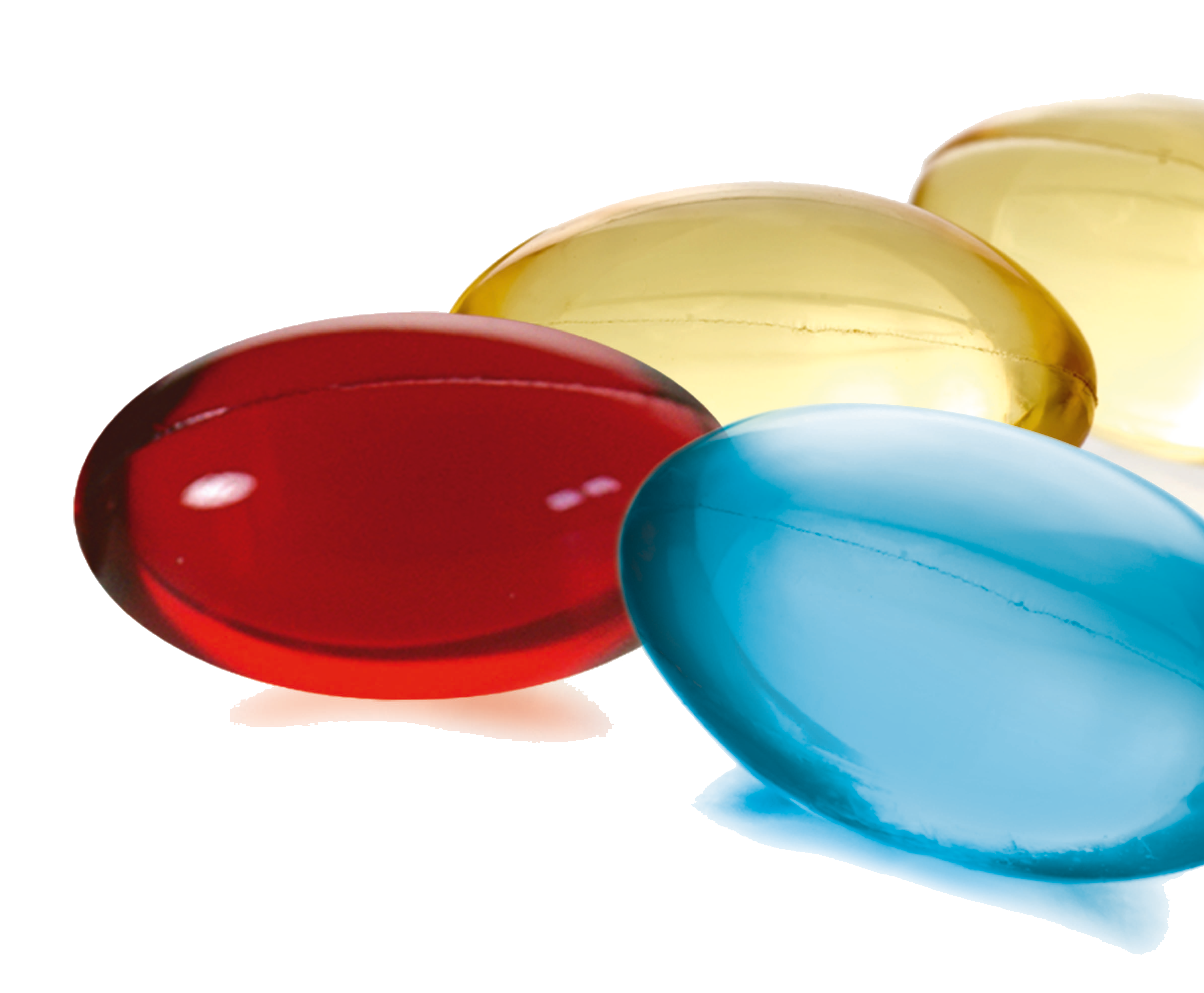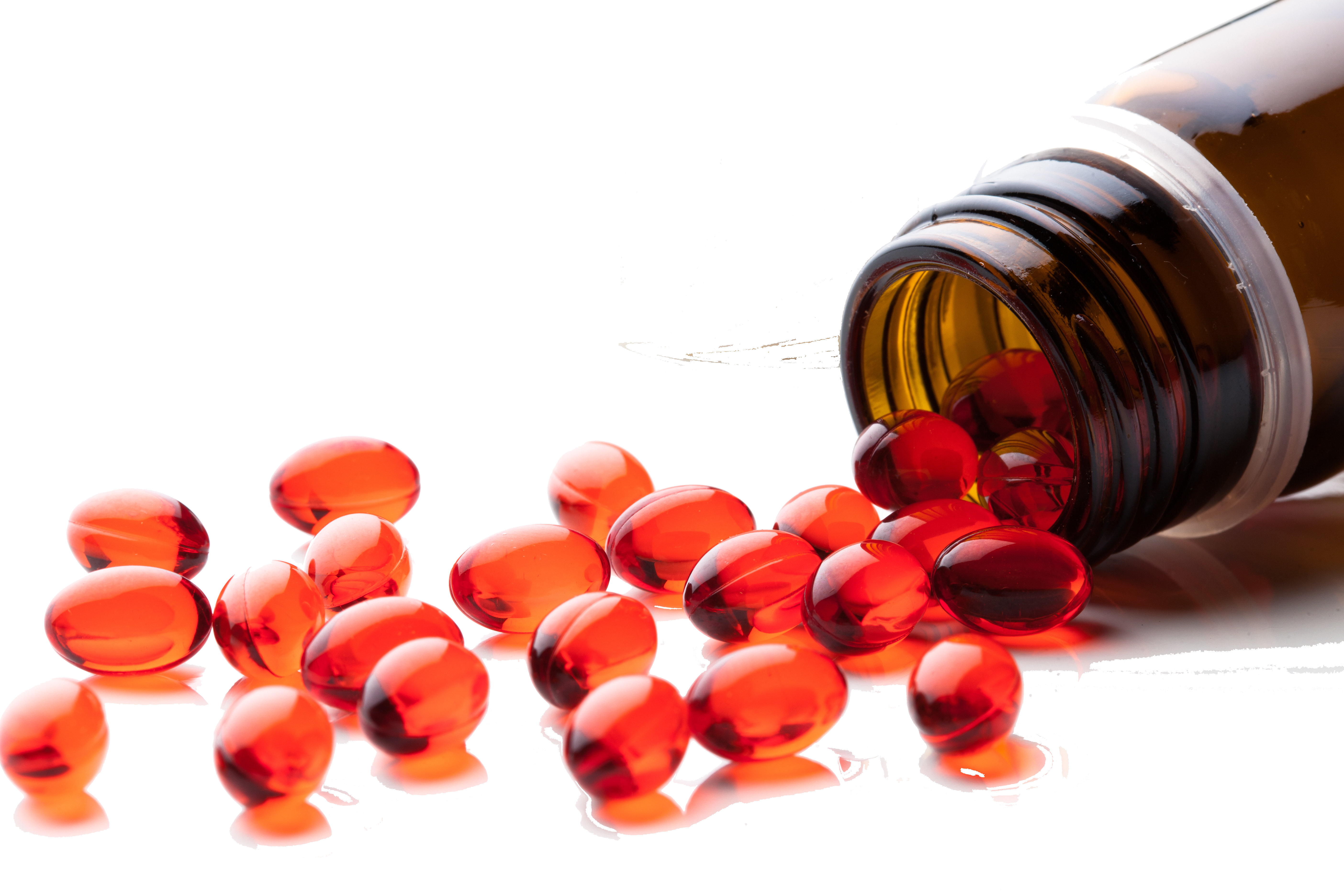What are soft capsules? What are softgels? Are these the same thing?
Soft capsules, also known as softgels, are an oral dosage form for the delivery of life-saving drugs, mineral, vitamins or other healthy ingredients via supplements. These convenient packages enable reliable dosing, portability and high consumer compliance. Alternatives include more cumbersome liquid, power or paste formulations. Specifically, softgels are one-piece capsules that are hermetically sealed that contain liquids or semisolid fills. Unlike hard capsules, softgels are filled at the same time as the capsule is produced. As the world's population ages and as we deal with COVID-19, health-minded consumers require dosage formats that are easy to use, easy to swallow and portable.
What are softgels used for?
Softgels are ideal for liquid or semisolid fills, making them highly suitable for the delivery of oil-based formulations.
Why are softgels preferred?
Like their hard capsule counterparts, softgels offer value to consumers and producers alike. These advantages are due largely due to their main component, gelatin. Gelatin means "stiff" and is a colorless dry powder that has been used for centuries in a host of food and pharmaceutical uses. For consumers, gelatin dissolves in the human body at normal body temperature, making it the ideal ingredient in softgels. While protecting the precious actives inside the capsule against oxygen, light, moisture and dust, the gelatin of the softgels affords consumers easy swallowing. Consumers also appreciate that the capsule size and color can help them to more easily identify the respective pharmaceutical drug or nutrient inside.

How long does it take softgels to dissolve?
softgels dissolve between 20 and 30 minutes in the stomach. When the shell meets water, the shell will take up water and starts to swell and will dissolve finally completely. Depending on the application the dissolving time can be adjusted. By variegate the formulation of the shell and the used components the dissolution properties can be adapted to the need of the application.
What kind of gelatin is used in softgels?
The primary gelatin types used in capsules are typically from bovine or porcine raw materials. Depending on the fill, formulation and on the target market group, manufacturers have flexibility in the raw material type, with some opting for a combination of porcine and bovine options. Bovine bone gelatin, for example, contributes to capsule firmness. Porcine options, on the other hand, offers plasticity and clarity characteristics.
How are softgels produced?
Softgels are completely closed units that typically feature a longitudinal seam and are produced using a rotary die process. Softgels (the shells themselves) are produced, filled with the ingredient and then sealed in a single process. In this process, the gelatin mass (gelatin, water and the plasticizer) are contained in stainless steel tanks and is then spread over stainless steel drums. Here, two ribbons are formed. The continuous and flexible ribbons of gelatin are then passed over two rotating dies. As the capsule is being formed between the rotary dies, it is simultaneously filled with the active ingredient and then dried.

What is the difference between softgels and tablets or pills?
Different than tablets – that are essentially compressed powders, gelatin hard capsules are convenient delivery systems that – because of their low friction properties – are easy to swallow. Gaining popularity in health & nutrition markets and in pharmaceutical applications for both humans and animals, several drugs or nutrients gain improved bioavailability when formulated in softgels. Softgels also offer advantages compared to tablets. Often, drugs or nutrients that are challenging to compact in a tablet or to accurately and consistently dose by weight, softgels offer an ideal solution.
Are softgels safe?
The gelatin in softgels is safe and meets and often exceeds the required regulations for use in pharmaceutical or health & nutrition supplements. Reputable gelatin suppliers adhere to strict quality requirements and local and global regulations. Further, these same gelatin companies administer rigorous physical, chemical and microbiological testing before the gelatin is released to pharmaceutical or other producers.
Are softgels allergenic?
The gelatin in soft capsules is virtually non-allergenic*. Gelatin is derived from naturally occurring collagen found in connective tissue. Gelatin is a pure protein, is easily digestible and free from side effects. *https://www.enzyklopaedie-dermatologie.de/allergologie/gelatinallergie-111102) Are softgels vegan/vegetarian? Gelatin softgels are not vegan nor vegetarian. Vegetarian capsules or vegan capsules, although a much smaller component of the global market, serve niche segments.
Can softgels be made from things other than gelatin?
Softgels can be made from gelatin or from other hydrocolloids (gelling agents). Gelatin, however, has been used for oral dosage forms for drugs and more for hundreds of years and is beloved and expected by consumers around the world. Although, gelatin capsules are considered a gold standard, in the past decades, new developments for plant based gelling excipients have emerged, such as starches, chemical modified cellulose like hydroxypropyl methylcellulose (HPMC), carrageenan, pullulan, etc. to meet the requirements for vegan or vegetarian formulations. Is there a standard size of softgel? There is no standard softgel size. Gelatin lends itself to a high degree of flexibility, allowing capsule producers to custom size, shape and color depending on the drug or nutrient inside.
